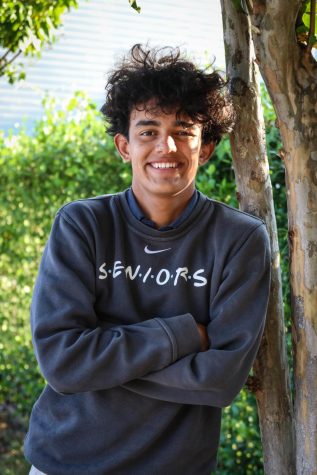Maradona, a National Hero

Diego Maradona is the most important figure in Argentina’s modern history. You may be thinking how could a soccer player be the most important figure in a country’s history? Important figures are supposed to be people like George Washington, Gandhi, and Nelson Mandela. Despite this common assumption, sports players have the power to unite countries in ways no politician could. For all athletes, student or otherwise, who underestimate your influence, Maradonna’s story of how he reignited the pride and unity of a country is a reminder of your power.
Before we begin Maradona’s story, we need to take a look at the darkest moment in the history of Argentina: The Falklands War. Years leading up to this war, Argentina had been under a dictatorship. In an attempt to win back the people and to show strength and nationalism, the Argentine government decided to try to invade and conquer the Falkland Islands, a set of islands that are around 1,000 miles east of Argentina, which had previously been conquered by the British. April 2, 1982, Argentina invaded the islands, leading the British to officially declare war 8 days later. This war lasted 72 days and ended in Argentine surrender. With 1,687 wounded soldiers and 649 dead soldiers, Argentina had suffered a humiliating, incredibly painful, and disastrous defeat to the eyes of the whole world (The falklands war). After years of suffering from dictatorship, on top of the loss of the war, Argentina was at its lowest point in their history. The Argentine people felt worthless, ashamed, and embarrassed of their county.
Flash forward 4 years to the 1986 World Cup, Maradona was undoubtedly the best player in the world and gave his country hope of possibly winning the biggest sports competition in the world. The tournament began with an incredible and inspired Maradona. Argentina had had an almost perfect performance and was now in the quarter-finals where they would be playing England. The buildup to this game was obviously emotional and controversial because of what had happened only 4 years prior. Argentina was no longer just playing for a spot in the semi-final; they were playing for their country’s pride and a sense of revenge. Maradona was the one who knew this the most. There’s a video of him in the locker room shortly before taking the field where he’s shouting, “Come on! Come on! These guys killed our kids, our friends, and our neighbors!”
Argentina would go on to win 2-1 with two Maradona goals. The first goal came 4 minutes into the second half where the ball was crossed in and Maradona placed his hand close to his head and punched the ball into the net with his fist. This goal would be known as, “The Hand of God.” 4 minutes later Maradona would get the ball 51 meters away from the goal and would dribble past 6 English players before putting the ball in the back of the net, scoring an impossible goal that is widely considered as the best goal of all time.
Maradona said this about the game later on in his career: “Although we had said before the game that football had nothing to do with the Falklands War, we knew they had killed a lot of Argentine boys there, killed them like little birds. And this was revenge. It was something bigger than us: We were defending our flag” (Zirin, 2020).
Maradona had completely humiliated the British, who had caused his country so much humiliation in two incredibly unique and distinct ways. His performance in that game was almost a political act where he had gotten revenge for his entire country and gave his country its pride and identity back. Maradona went on to score two more goals in the semifinal against Belgium and then a game-winning assist in the final against Germany to win the World Cup with Argentina. Maradona had put the team (and country) on his back and delivered hope, joy, and most importantly identity to his country when they most needed it, making him a national hero and the most important figure in their history, showing the power that athletes have to make a difference on and off the field.
References
The falklands war. (2022, March 8). The Royal British Legion. https://www.britishlegion.org.uk/stories/the-falklands-war
Zirin, D. (2020, November 30). The politics of maradona’s iconic ‘hand of god’ goal. The Nation. https://www.thenation.com/article/society/maradona-england/

Sebastian Lozano is an innovative, sharp, and passionate writer in the Viking Press. Inspired by his journalist uncle in Colombia, Lozano plans to leave...
